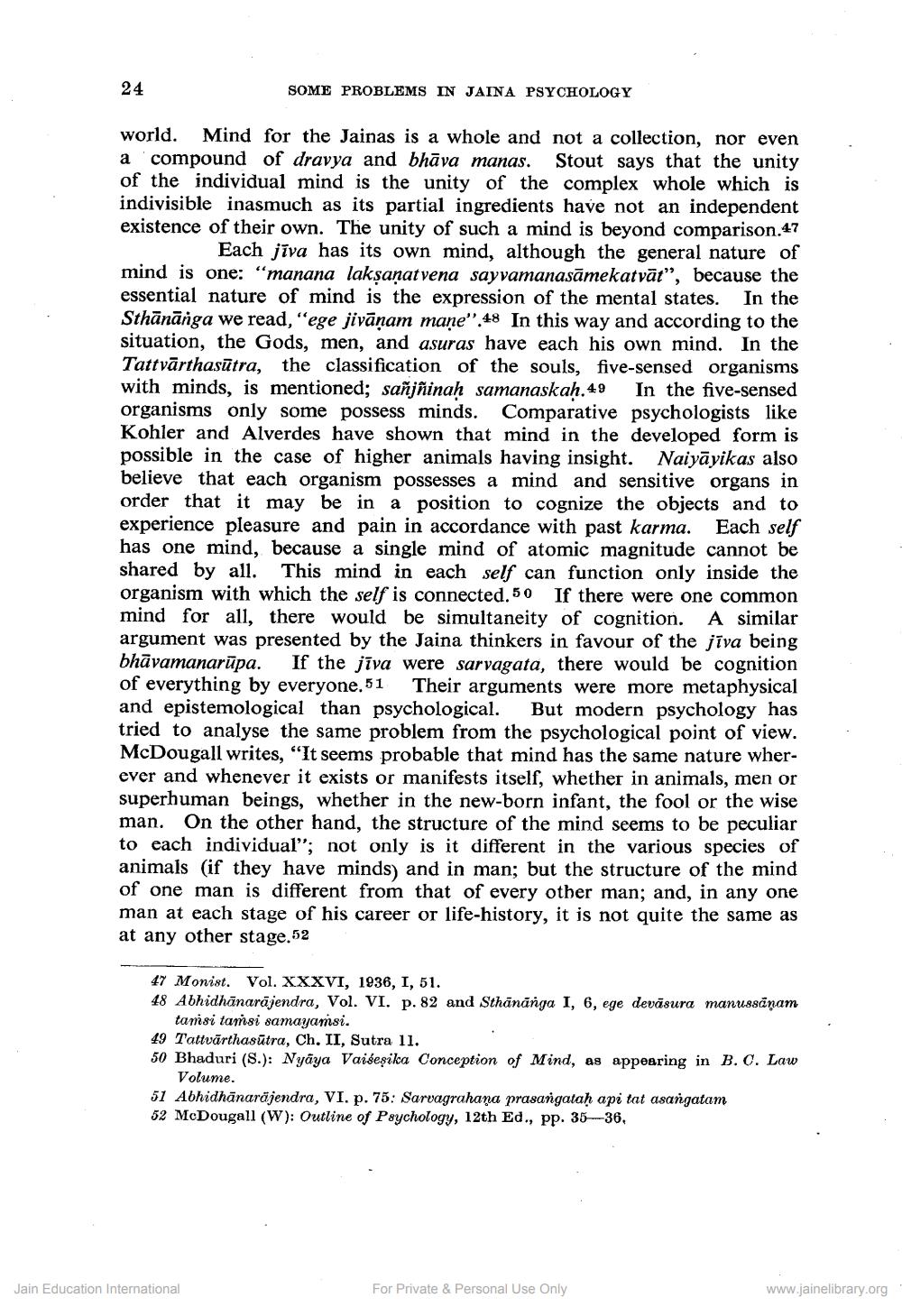________________
24
SOME PROBLEMS IN JAINA PSYCHOLOGY
world. Mind for the Jainas is a whole and not a collection, nor even a compound of dravya and bhāva manas. Stout says that the unity of the individual mind is the unity of the complex whole which is indivisible inasmuch as its partial ingredients have not an independent existence of their own. The unity of such a mind is beyond comparison.47
Each jīva has its own mind, although the general nature of mind is one: "manana lakṣaṇatvena sayvamanasāmekatvāt”, because the essential nature of mind is the expression of the mental states. In the Sthānānga we read,"ege jivāṇam maņe".48 In this way and according to the situation, the Gods, men, and asuras have each his own mind. In the Tattvārthasūtra, the classification of the souls, five-sensed organisms with minds, is mentioned; sañjñinah samanaskah.49 In the five-sensed organisms only some possess minds. Comparative psychologists like Kohler and Alverdes have shown that mind in the developed form is possible in the case of higher animals having insight. Naiyāyikas also believe that each organism possesses a mind and sensitive organs in order that it may be in a position to cognize the objects and to experience pleasure and pain in accordance with past karma. Each self has one mind, because a single mind of atomic magnitude cannot be shared by all. This mind in each self can function only inside the organism with which the self is connected.50 If there were one common mind for all, there would be simultaneity of cognition. A similar argument was presented by the Jaina thinkers in favour of the jīva being bhāvamanarüpa. If the jīva were sarvagata, there would be cognition of everything by everyone.51 Their arguments were more metaphysical and epistemological than psychological. But modern psychology has tried to analyse the same problem from the psychological point of view. McDougall writes, “It seems probable that mind has the same nature wherever and whenever it exists or manifests itself, whether in animals, men or superhuman beings, whether in the new-born infant, the fool or the wise man. On the other hand, the structure of the mind seems to be peculiar to each individual"; not only is it different in the various species of animals (if they have minds) and in man; but the structure of the mind of one man is different from that of every other man; and, in any one man at each stage of his career or life-history, it is not quite the same as at any other stage.52
47 Monist. Vol. XXXVI, 1936, 1, 51. 48 Abhidhānarājendra, Vol. VI. p. 82 and Sthānānga I, 6, ege devāsura manussanam
tamsi tamsi samayamsi. 49 Tattvārthasūtra, Ch. II, Sutra 11. 50 Bhaduri (S.): Nyāya Vaiseșika Conception of Mind, as appearing in B. C. Law
Volume. 51 Abhidhänarajendra, VI. p. 75: Sarvagrahana prasangatah api tat asangatam 52 McDougall (W): Outline of Psychology, 12th Ed., pp. 35--36,
Jain Education International
For Private & Personal Use Only
www.jainelibrary.org




